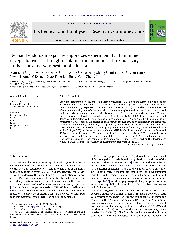摘要
Early-life exposure to bacterial endotoxin (lipopolysaccharide, LPS) affects the susceptibility to a variety of systemic organic inflammation in adulthood. To determine the long-term effects of neonatal LPS exposure on inflammatory responses in the central nervous system (CNS) in adulthood, we examined the effects on the development of experimental autoimmune encephalomyelitis (EAE) in adult rats as well as the potential regulatory immune mechanisms involved. The results showed that neonatal LPS exposure significantly reduced the morbidity (p < 0.01) and severity (p < 0.05) of EAE in adult rats, and decreased inflammatory cell infiltration and demyelination in the CNS compared with neonatal saline controls (p < 0.05). Neonatal LPS-treated animals showed reduced activation of microglia and astrocytes, as detected by immunocytochemistry, accompanied by down-regulation of the pro-inflammatory cytokines interleukin-17 and interferon-gamma but up-regulation of anti-inflammatory cytokine interleukin-10 in the CNS (p < 0.05). At the same time, cerebrum mRNA levels of the transcription factors T-bet and ROR gamma t were lower in neonatal LPS-compared with saline- treated animals (p < 0.05) accompanied with increased STAT-6 and Foxp3 levels in the neonatal LPS-treated group (p < 0.05). These findings suggest that early-life exposure to LPS could provide an important neuroprotective effect on the development of EAE in adult rats due to modulation of inflammatory responses in the CNS.
- 出版日期2010-7-23
- 单位温州医科大学
